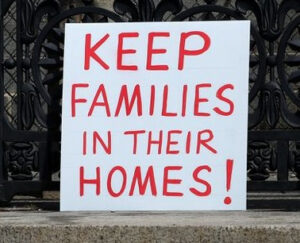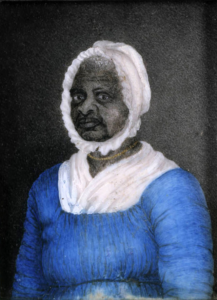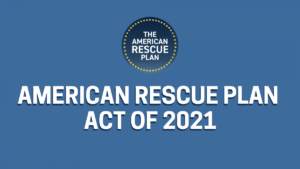Facing Eviction or Worried About Paying Rent? Help Is Available

On July 31st, the federal eviction moratorium, put in place as the pandemic took hold in 2020 by the U.S. Centers for Disease Control, expired. On August 3rd, the Biden Administration announced a moratorium that is similar but does not presently cover all Massachusetts residents – but it will give the Commonwealth time to act on the COVID Housing Equity bill, which we at MLRI are working diligently to see passed.
The reality is that even today tenants across Massachusetts continue to be at risk of eviction during this escalating public health crisis. Advocates fear confusion around the CDC order will result in displacement, and its expiration will bring a new wave of eviction cases. It’s worth noting that when the state allowed its moratorium to expire last fall, more than 19,000 people were sued for eviction and thousands of pending cases that were on hold resumed making their way through the court system.
At MLRI, we are urging tenants not to panic, not to move out, and to seek rental assistance and legal aid. The silver lining to this very dark cloud is that there are unprecedented amounts of federal funds available to help with rent and mortgage payments, utility assistance, and moving expenses. Tenants should apply immediately for assistance. There are also free legal services lawyers available to provide advice and representation, and community organizations to offer support and information.
FindYourFunds.org Helping Vulnerable Massachusetts Residents
 The Massachusetts Law Reform Institute assisted The Shah Family Foundation in launching a centralized website last month called FindYourFunds.org. The site helps Massachusetts residents access federal cash payments through expanded federal tax credit programs. These programs include the Earned Income Tax Credit (EITC), Child Tax Credit (CTC), and Economic Impact Payments (also known as stimulus checks). Children’s HealthWatch, Greater Boston Legal Services, and Massachusetts Association for Community Action (MASSCAP) also collaborated on the website.
The Massachusetts Law Reform Institute assisted The Shah Family Foundation in launching a centralized website last month called FindYourFunds.org. The site helps Massachusetts residents access federal cash payments through expanded federal tax credit programs. These programs include the Earned Income Tax Credit (EITC), Child Tax Credit (CTC), and Economic Impact Payments (also known as stimulus checks). Children’s HealthWatch, Greater Boston Legal Services, and Massachusetts Association for Community Action (MASSCAP) also collaborated on the website.
“The pandemic caused an economic crisis that has laid bare the stark, systemic inequities and challenges facing low-income families across the Commonwealth, especially Black and Latinx communities,” said our executive director, Georgia Katsoulomitis, at the time of the launch. “Our lowest income households are the most likely to be left out of this critical federal relief. FindYourFunds.org connects families to the multilingual information they need and is a resource state agencies can share broadly with families across the Commonwealth. FindYourFunds.org will increase access and decrease barriers.”
The site is helping people from across the Commonwealth access the support they need during these still-challenging times. As the Boston Globe reported, the IRS has estimated that about 58,000 children will miss out on the Child Tax Credit unless they are connected to the tax system. Since June 1, about 140,000 unique visitors have visited FindYourFunds.org. There is a clear need for assistance among vulnerable individuals and families and this site is helping to address that need.
FindYourFunds.org is a simple, one-stop-shop with information on who is eligible for these programs and how to apply, as well as links to free resources that provide guidance and application assistance. If you believe you qualify for additional support – or know someone who does – please make sure to visit the site.
The End of Slavery in Massachusetts: How the Power of Law Fulfilled the Promise of Justice

In the same year that the American Revolution officially ended and the Treaty of Paris was signed — 1783 — the Commonwealth of Massachusetts effectively abolished the institution of slavery. Some 80 years before the signing of the Emancipation Declaration and 82 years before the last enslaved individuals in Galveston, Texas were freed in 1865, Massachusetts determined that enslaving Black men and women was incompatible with its new state constitution and ended the barbaric practice. And all of it was achieved through the legal system, not through armed conflict.
This, of course, does not excuse the participation of the Commonwealth in an institution that has wrought so much damage on generations of Black Americans. Massachusetts, like our nation as a whole, must grapple with the destructive legacy and lasting trauma of slavery and with the massacres and forced relocations of Native and indigenous people within our borders.
But as we celebrate Juneteenth on June 19, which marked the unequivocal termination of the abhorrent practice in the United States, it is also worth knowing the history of slavery’s end in Massachusetts — and how the legal system and two courageous individuals played a pivotal role in it.
Valuing Legal Services for People in Poverty
At the end of May, the Biden/Harris administration released its budget for FY22. Continuing the theme that emerged with the American Rescue Plan that President Biden signed in March and the American Jobs Plan and American Families Plan legislation he introduced in April, the new budget highlights the ways that the new administration is working to ease the burden of poverty on some of the country’s most vulnerable communities.
It’s a significant change in tone, not only from the administration immediately prior to this one but to several previous presidential administrations. It’s been decades since a U.S. President has focused on strengthening our nation’s social safety net, rather than weakening it thread by thread. And for those of us who have been on the front lines of advocating for laws and policies that help people living in poverty, rather than hurting them, it’s refreshing.
We thought we’d focus on one aspect of the President’s budget because it symbolizes this important sea change: its support of legal services and civil legal aid.
MLRI Statement Regarding Verdict in the Trial of Derek Chauvin
The outcome of the Derek Chauvin trial – guilty on all counts – brings some measure of justice to the family of George Floyd, and relief to the community in Minneapolis, to Black and brown communities across the nation, and to all people of conscience.
The Massachusetts Law Reform Institute applauds the state prosecutors for making a strong case and the jury for their verdict. But the truth is that George Floyd should be alive today. His life mattered, he mattered. His agonizing death was the outcome of systemic racism in our nation that has devalued the humanity of Black people for 400 years. The Massachusetts Law Reform Institute pledges to continue our work to combat racism and injustice and to ensure that our Commonwealth and our nation treats Black and brown people with dignity, and that as a society we promote equity along with justice.
In solidarity,
Georgia Katsoulomitis, Executive Director
Virginia Benzan, Director, MLRI Racial Equity & Justice Project
MLRI Applauds the American Rescue Plan Act
 Last month, President Biden signed the $1.9 Trillion American Rescue Plan Act. The law will not only provide much-needed support to the American people as we all continue to manage hardships related to the COVID-19 pandemic, it will also lead to a substantial reduction in poverty in this country.
Last month, President Biden signed the $1.9 Trillion American Rescue Plan Act. The law will not only provide much-needed support to the American people as we all continue to manage hardships related to the COVID-19 pandemic, it will also lead to a substantial reduction in poverty in this country.
The American Rescue Plan Act recognizes a fundamental reality – this pandemic has been particularly difficult on already vulnerable individuals and families. People living in poverty, Black and Brown communities, and immigrant families all have suffered disproportionately from COVID-19. The rescue plan means more resources and opportunities for those communities, which will in turn mean better public health and economic outcomes for all of us – because we are one society, one economy – and collective success and opportunity benefits everyone.
In particular, the new law – which was introduced by President Biden on the first day he assumed the Presidency and finally passed by the U.S. House of Representatives and the U.S. Senate in March – will have a tremendously positive impact on child poverty in this country.
Welcome!
Welcome to MLRI’s new blog.
We plan to use this platform to share MLRI news, helpful information on our initiatives, and perspectives on important topics related to poverty law. 2020 was one of the most difficult years in all of our memories. At the same time, the COVID-19 pandemic and the protests highlighting the importance of racial equity could not have made it clearer that the work we do is important to helping people living in poverty, Black and Brown communities, and other vulnerable residents.
MLRI has been a nationally recognized poverty law and policy center for more than five decades. We work together with advocacy and community partners to protect the rights of low income individuals and families. Throughout the last 50 years, we’ve had hundreds of victories — large and small — and led groundbreaking initiatives that have benefitted low-income people in Massachusetts.
We are working on a number of initiatives related to housing protections, racial equity, immigrants’ rights, food insecurity, and many more. We plan to use this blog to inform you of our work and update you on our progress.
Thank you for your interest in our work and we look forward to sharing more with you in the weeks and months to come.
